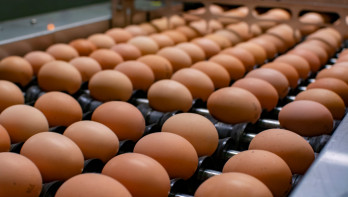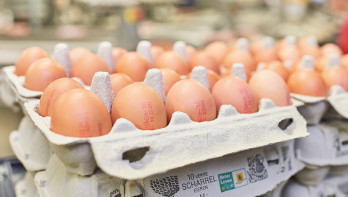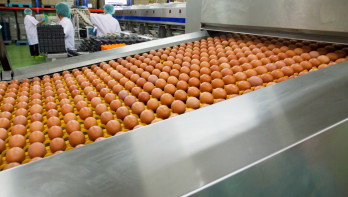Analysis Commodities
Egg market for now does not react to bird flu
The egg market is still in a summer dip. As the summer holidays slowly begin, the demand for eggs decreases. The decline is still more pronounced in the German market. The expectation is that the price will decrease further, although this is not certain due to an outbreak of bird flu near the Dutch border.
The price of eggs has taken another step downwards. In week 26, size M free-range eggs were traded for €12.05 per 100 pieces. In week 28, the price dropped to €11.90.
The egg market seems to be in the middle of its annual summer dip. This is related to the school holidays. In summer, almost all food markets take a step back because a significant portion of North Europeans travel to the south of Europe during this period. This reduces the demand for food. Producers of perishable products such as meat and eggs are particularly affected. The expectation is that the market will normalize around August. In the middle of the summer vacation, the demand increases again as the market moves towards the return of consumers.
The market expectation is that the egg price will slowly decrease further. The dip seen in the graph is caused by the significant price difference before and after the war in Ukraine. In the part where the egg prices in 2024 have not been included, the prices are lower than average. However, it is clear from the graph that the decline in egg prices generally continues until summer.
German market dip remains larger
In the German market, the price continues to decline more strongly. In week 25, 100 brown eggs size M were traded for €11.75. By week 27, the price had dropped to €11.30. This makes the German egg price lower than the Dutch price again. The expectation is that the decline will continue. Market bureaus advise packing stations to continue selling mainly. This advice is being followed extensively. Packing stations report that few reserves are being built up. The market chooses to sell at a lower price, hoping that the market will face scarcity again after the summer vacation. The German egg sector currently accepts low returns and aims for higher profits after the summer.
The supply side of the market is still ample. Meanwhile, the expectation is that the demand will further decrease. This week, the summer vacation starts in the largest German state, North Rhine-Westphalia. The state has nearly 18 million inhabitants, making the demand decline significant for the next one and a half months. Meanwhile, insiders in the market state that the industrial market is perfectly balanced. The industry is buying as much as possible to take advantage of the summer dip.
Bird flu
The market seems to be showing its familiar pattern again after two unstable years. However, it is not entirely certain that the situation will remain the same. The bird flu virus has resurfaced after a long absence at a laying poultry farm in Bad Bentheim, bordering the Netherlands. In total, about 91,000 laying hens have been culled. The impact on the market has been limited so far, although the infection at the Dutch border poses a risk for both the Dutch and German markets.

Matthijs Bremer
© DCA Market Intelligence. Op deze marktinformatie berust auteursrecht. Het is niet toegestaan de inhoud te vermenigvuldigen, distribueren, verspreiden of tegen vergoeding beschikbaar te stellen aan derden, in welke vorm dan ook, zonder de uitdrukkelijke, schriftelijke, toestemming van DCA Market Intelligence.


